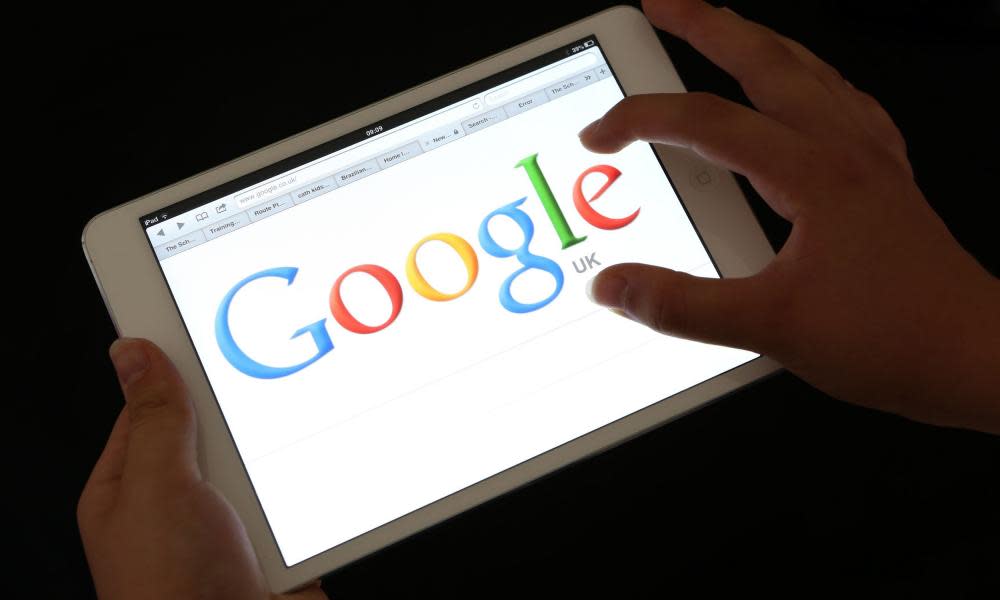Britons make 170,000 antisemitic Google searches a year, study finds

At least 170,000 antisemitic Google searches are made in the UK every year, with 10% of them involving violent phrases such as “Jews must die” or “kill Jews”, research has revealed.
The analysis for the Community Security Trust (CST) showed that while most of the searches are for jokes mocking Jewish people, the most common negative stereotypes claim Jews are “evil” and “racist”.
In the 12 months after Google amended its autocomplete function to stop the word “evil” appearing after someone typed “are Jews”, there was a 10% decline in the number of these searches, the research found.
The findings cover a 14-year period starting in 2004 and are based on analysis of Google data, as well as material from the archive of the far-right website Stormfront, one of the oldest and largest neo-Nazi websites.
The study, commissioned jointly by the CST and the Antisemitism Policy Trust, set out the most common abusive searches, where they are most popular and at what time of the day, and how trends have changed over time. The report found:
17,000 antisemitic searches on Google every year have violent connotations. These searches tend to spike between 2am and 3am.
Antisemitic searches are higher in Wales than in any other part of the UK by proportion of the population, and lowest in Scotland.
Antisemitic searches are just as high in cities that mostly vote Labour as they are in cities that mostly vote Conservative.
Someone searching for jokes about Jews is 100 times more likely to search for jokes about black people, using the N-word.
The number of antisemitic searches rose sharply in the days following Israel’s Eurovision song contest victory last year, and went up 79% in April 2018, when Labour was embroiled in a row over antisemitism.
The research also pointed to an enduring fascination with conspiracy theories about the role of the Rothschild banking family in “running the world”.
The report said there are more Google searches in the UK every year related to the Rothschilds than for Jewish celebrities such David Baddiel or Tracy Ann Oberman.
Searches related to the Rothschilds have risen by 39% in the past three years, the research showed.
Though the report acknowledged “it is impossible to know for sure that any given search is made by a person with antisemitic attitudes”, it said people tend to be far more open when they search for something online, revealing prejudices, hatreds and interests they might otherwise have kept hidden.
Seth Stephens-Davidowitz, the author of the report – titled Hidden hate: what Google searches tell us about antisemitism today – said: “We have found that searches looking for information on the Holocaust being a hoax rise about 30% every year on Holocaust Memorial Day.
“We learned that Jewish women in public life or positions of power are the subject of more antisemitism searches than Jewish men in similar positions.
“We found evidence of the rise in popularity of antisemitic conspiracy theories … and we found that sometimes heightened media focus on Jews or Israel, even if it is positive, can still lead to an increase in online searches for antisemitic content.”
Though the report welcomed Google’s change in 2016 to the autocomplete formula, it said prior to doing so, the search engine was effectively “directing people to make antisemitic searches who might otherwise not have done so”.
Dr Dave Rich, the head of policy at the CST, said: “Search engines and internet companies have a responsibility to ensure that people asking these questions are directed away from hateful content and towards material that might challenge their prejudices.”
Google said it “does its best to prevent inappropriate predictions”. A spokesperson added: “We partner with organisations in the UK who work to tackle hate speech, including CST and Stop Hate UK. Autocomplete helps you get to the information you are looking for as quickly as possible. For certain issues, including hateful predictions against groups and individuals based on religion, we have developed policies to exclude such terms.”

 Yahoo News
Yahoo News 
